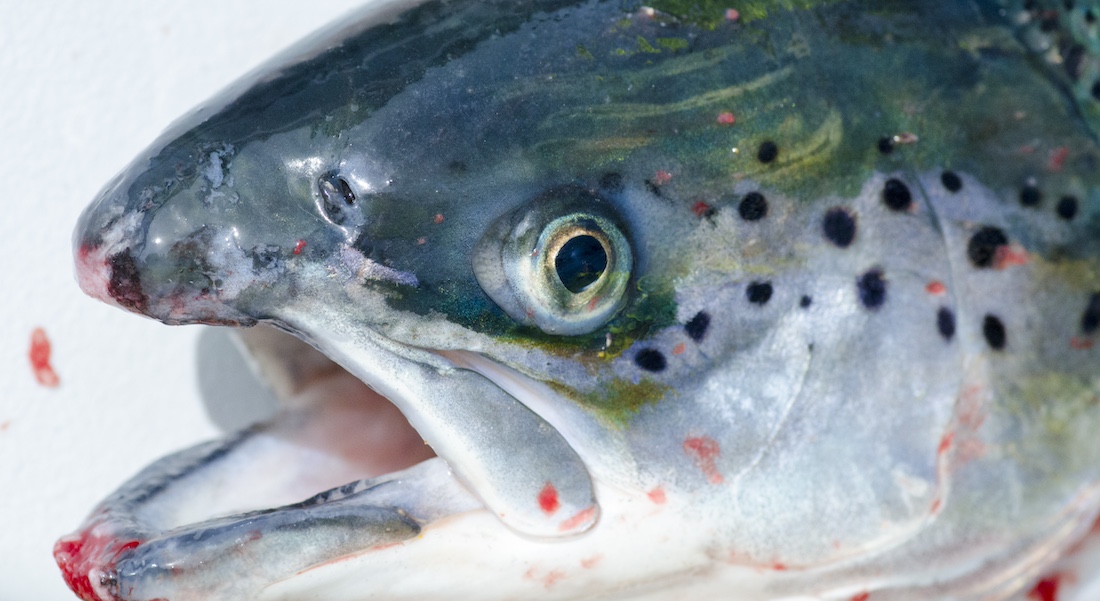A new hologenomic paradigm for understanding and treating parasite infections
In a new study, researchers shed light on the intricate relationship between host–gut microbiota interactions and their influence on parasite infections in farmed Atlantic salmon. Highlighting the importance of a hologenomic approach to understand and improve salmon health in aquaculture.

In a world with a rapidly growing human population food security is an important challenge. Aquaculture is the fastest growing food sector offering more sustainable protein than e.g. terrestrial livestock. However, farmed salmon face challenges with disease outbreaks and impaired growth making the production less sustainable.
This new study not only establishes a clear association between parasitic worm infection, salmon lifetime growth, and alterations in the salmon gut microbiota but it also presents the first evidence that the genetic background of the salmon plays a role in shaping the gut microbiota during parasite-associated dysbiosis. Important knowledge towards further improving a sustainable growth of the salmon farming industry.
“The findings underscore the importance of the hologenomic approach in gaining a more profound understanding of parasitism, opening a new avenue for future efforts aimed at improving health and survival in animals, and even humans, suffering parasitic diseases.” explains Associate Professor Morten Limborg.
An indicator of a healthy gut
The study, led by scientists from Center for Evolutionary Hologenomics, involved the analysis of multi-omics data obtained from the guts of 460 Atlantic salmon - a majority of these were naturally infected by an intestinal parasitic worm.
“Notably, a single Mycoplasma bacterial strain dominated the gut metagenome of large, non-parasitized fish, indicating a healthy gut. These findings align with earlier research that high levels of Mycoplasma in the gut microbiota is a biomarker indicating healthy salmon.” Morten continues.
However, the researchers discovered a distinctive pattern in smaller parasitized salmon. Although the Mycoplasma strain remained prevalent, there was an increase in the overall microbial diversity in these individuals. This shift was attributed to an increased frequency of for example virulent Vibrio bacteria species. Hence, this shift in diversity and microbial species composition can be used to assess the overall health of the salmon as well as to treat the smaller salmon to reestablish a healthier gut microbiome.
Understanding host-parasite interactions
The study underscores the significance of employing a hologenomic approach to fully comprehend the dynamics of host–parasite interactions. Integration of multi-omic data sets revealed coordinated changes in the salmon gut metabolism, correlating with shifts in the microbiota of smaller parasitised fish. Together, these results suggest that parasitised fish undergo a state of dysbiosis, that is imbalance in their microbiome composition influenced, in part, by the host genes.
“This study is the largest multi-omics fish microbiota investigation to date, and it provides valuable insights into host–microbiota interactions that can be translated to any other animal species” Morten ends.
With intestinal parasite infections posing significant health challenges for both humans and animals, this research bridges a critical gap in understanding the role of host-microbiota interactions during parasite infections.
Read the scientific article here.
Contact:
Associate Professor Morten Limborg.
